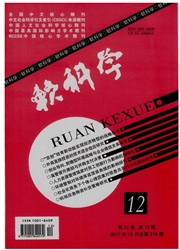

 中文摘要:
中文摘要:
针对企业自有基地生产模式和"农户+合作社+企业"模式的我国两类不同食品安全追溯体系的主要实施模式,通过建立优化模型,分析了两种模式实施追溯体系主体企业的相关决策行为。比较分析结果表明:若合作社农户是风险中性的,两种模式中供给安全农产品的最优努力水平、企业实施追溯体系的最优成功率是相同的,供给不安全食品导致企业损失对最优决策的影响也相同。
 英文摘要:
英文摘要:
For two different main implementation modes of food safety traceability system, which are the base mode owned by the enterprise and the mode of "farmers, cooperative and enterprise" in China, the optimization models are built to analyze the decisions of the enterprise as the implementation subject of food safety traceability system, including the success rate of implementing the traceability system, the efforts for the safe food supply and the effect of the loss caused by the food safety problems on the optimal decision variables. The comparative analysis shows that if the farmers of the cooperative are risk neutral, then the optimal efforts for the safe food supply and the optimal success rate of implementing the traceability system are same, and the loss caused by the food safety problems has the same effect on the optimal decision.
 同期刊论文项目
同期刊论文项目
 同项目期刊论文
同项目期刊论文
 期刊信息
期刊信息
